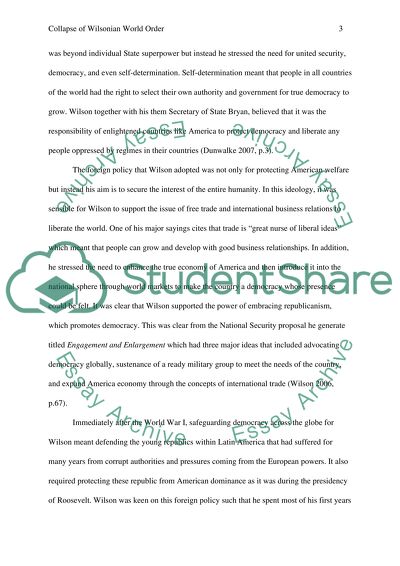Cite this document
(“Collapse of Wilsonian World Order Essay Example | Topics and Well Written Essays - 1500 words”, n.d.)
Retrieved from https://studentshare.org/history/1490934-why-did-the-wilsonian-world-order-collapse-theory
Retrieved from https://studentshare.org/history/1490934-why-did-the-wilsonian-world-order-collapse-theory
(Collapse of Wilsonian World Order Essay Example | Topics and Well Written Essays - 1500 Words)
https://studentshare.org/history/1490934-why-did-the-wilsonian-world-order-collapse-theory.
https://studentshare.org/history/1490934-why-did-the-wilsonian-world-order-collapse-theory.
“Collapse of Wilsonian World Order Essay Example | Topics and Well Written Essays - 1500 Words”, n.d. https://studentshare.org/history/1490934-why-did-the-wilsonian-world-order-collapse-theory.


